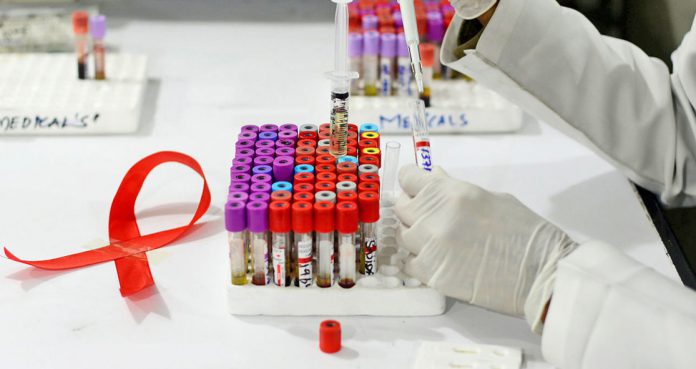In what could be a groundbreaking discovery, scientists have successfully eradicated HIV from the DNA of infected mice, bringing them a step closer to finding a cure in humans.
Researchers from the Temple University and the University of Nebraska Medical Center (UNMC) have been able to eliminate the infection by using a combination of “gene-editing technology and a slow-release antiviral drug.”
The findings of the study were published Tuesday in Nature Communications.
Study author Dr. Howard Gendelman said, “The possibility exists that HIV can be cured. It’s going to take a little bit of time but to have the proof of concept gets us all excited.”
According to the Joint United Nations Programme on HIV/AIDS (UNAIDS), more than 37 million people are living with HIV. If left untreated, HIV can develop into AIDS.
Current HIV treatment includes daily, lifelong antiretroviral therapy (ART), which stops the virus’ ability to proliferate, but does not eradicate the virus from the body.
The researchers used a new type of ART known as “LASER ART” on 23 humanized mice, the animals that are genetically modified to bear similarities to the human immune response. The mice were able to control the release as well as the metabolism of the drug, which allowed it to suppress virus replication for a longer period.
Dr. Gendelman said, “That’s why we believe this technology is working because the LASER ART is reducing the virus significantly and then the CRISPR comes in and it’s able to be more effective. They work at different stages, but put together they’re kind of buddies.”
He emphasized that the process “only is successful if we get rid of every virus in the body.”
“We had to be highly efficient and getting a third of these animals cured is amazing considering what we were up against,” explained Dr. Gendelman.
However, it is unclear how long it will take to conduct clinical trials and how to decide the dose for humans. The researcher said, “We’re working on this day and night and we hope it’ll be sooner than later, but we have some obstacles to overcome,” he said. “There’s a tremendous amount of effort to move this technology forward.”























